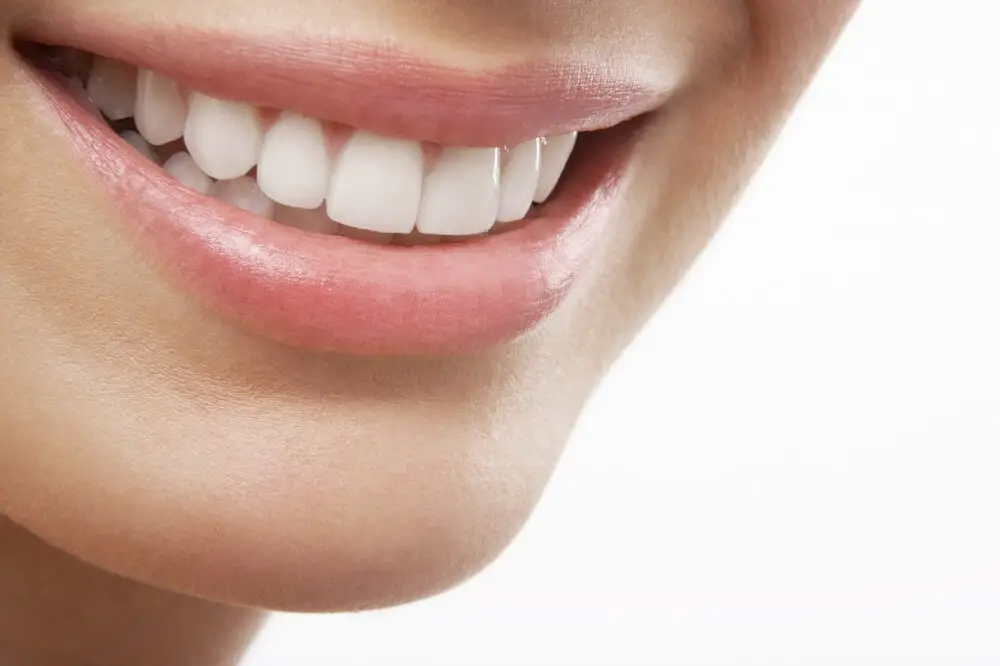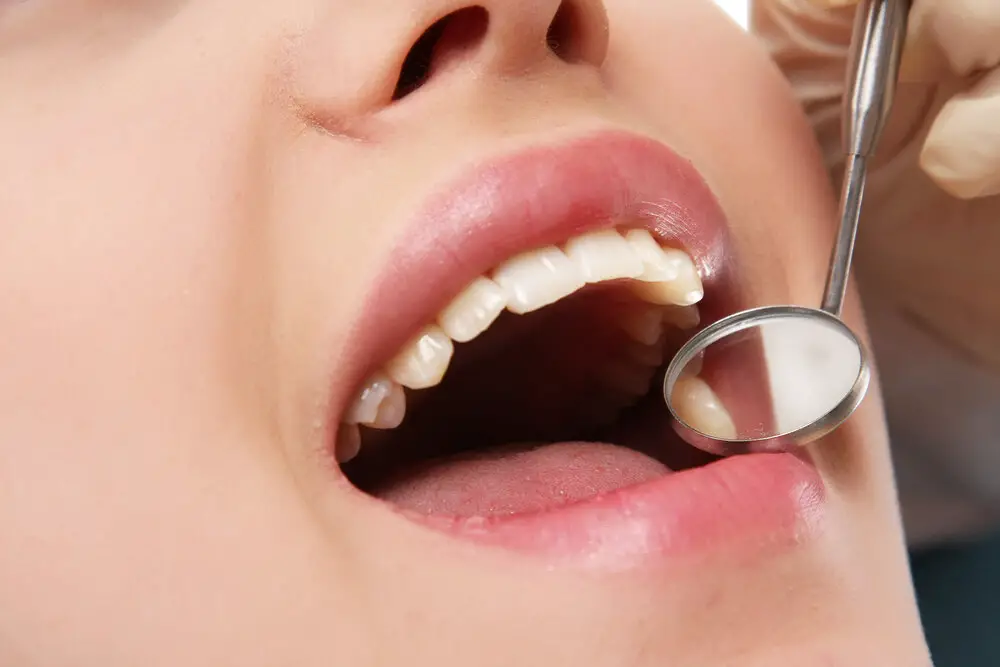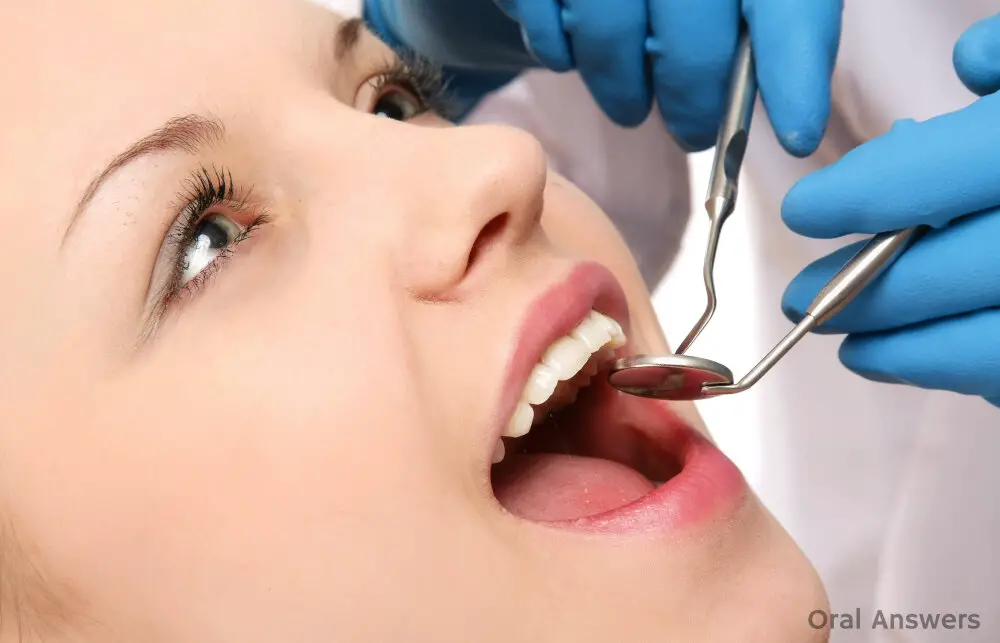Big Front Teeth: Understanding the Causes and Solutions

Having big front teeth can be a source of self-consciousness for many individuals. It can affect their facial appearance and make them feel uncomfortable when they smile or talk. While some people may embrace their prominent teeth, others may seek solutions to reduce their size or prominence. Understanding the causes of big front teeth can help individuals make informed decisions about their dental health and appearance. There are various reasons why someone may have big front teeth. Genetics can play a significant role, as some families may have a predisposition for larger teeth. Additionally, certain medical conditions or habits, such as thumb sucking or tongue thrusting, can also contribute to the development of big front teeth. Understanding the root cause of the issue can help individuals determine the best course of action to address their concerns. With the help of dental professionals, there are a variety of solutions available to help individuals achieve a smile that they can feel confident in.
Big front teeth are a common dental issue that affects many people around the world. This condition, also known as prominent front teeth or buck teeth, is characterized by the protrusion of the upper front teeth beyond the lower teeth. It can be caused by a variety of factors, including genetics, thumb sucking, tongue thrusting, and mouth breathing. While some people may find their big front teeth endearing, others may feel self-conscious about their appearance and seek treatment options. Fortunately, there are several solutions available, such as orthodontic treatment, dental bonding, and veneers, that can effectively address this issue and improve the aesthetics and functionality of the teeth.
People may feel self-conscious about their physical appearance for various reasons, and having big front teeth is one of them. This can be due to the way they were born, or it could be a result of an injury. Whatever the cause may be, it can lead to a lack of confidence and self-esteem. People with big front teeth may feel like their teeth are the first thing people notice about them, and this can lead to anxiety in social situations. They may also feel like their teeth are unattractive and that they are being judged by others. This self-consciousness can have a significant impact on a person’s mental health, and it’s important to understand the causes and solutions to address it.
Causes of Big Front Teeth

Many people consider big front teeth to be an aesthetic issue, causing self-consciousness and embarrassment. However, big front teeth are not always a cosmetic problem, as they can be caused by a variety of factors. Genetics often play a significant role, as some individuals have naturally larger teeth than others. Additionally, certain medical conditions, such as acromegaly or gigantism, can lead to enlarged facial features, including the teeth. Other potential causes of big front teeth include poor dental habits, such as grinding or clenching the teeth, which can cause them to appear larger over time. In some cases, the teeth may be large due to an overbite or other malocclusion, meaning that the upper and lower teeth do not align correctly. This can cause the upper teeth to appear more prominent than they actually are, leading to the appearance of big front teeth. Regardless of the cause, individuals with big front teeth may feel self-conscious or uncomfortable with their appearance, and seeking the advice of a dental professional can help identify the best solution. There are several potential solutions for individuals with big front teeth, depending on the underlying cause. In some cases, orthodontic treatment may be recommended to realign the teeth and improve the bite. This can involve the use of braces or aligners to gradually shift the teeth into the correct position. In other cases, cosmetic dentistry procedures such as veneers or bonding may be recommended to reshape the teeth and improve their appearance. Ultimately, the best solution will depend on the individual’s unique needs and goals, and consulting with a dental professional can help determine the most appropriate course of action.
Genetics plays a significant role in determining the size and shape of our teeth. Genetic mutations and variations can cause abnormalities in tooth development, leading to conditions such as malocclusion, overcrowding, and large front teeth. Researchers have identified several genes that control tooth size and shape, including the BMP4, RUNX2, and MSX1 genes. These genes regulate the signaling pathways involved in tooth development and can influence the size, shape, and number of teeth that individuals develop. Understanding the genetic factors that contribute to big front teeth can help dentists and orthodontists develop more effective treatments to correct these issues and improve oral health outcomes.
Thumb sucking or pacifier use as a child is a common habit that many children develop as a way to self-soothe or cope with stress. While these habits may bring comfort to a child, they can also lead to dental problems such as misaligned teeth or an overbite. If the habit continues past the age of four or five, it may be time to intervene and seek out ways to break the habit. Encouraging positive behaviors and providing alternative ways to cope with stress can help a child overcome their reliance on thumb sucking or pacifiers and prevent future dental issues.
Teeth grinding or clenching, also known as bruxism, is a common dental condition that affects a large number of people. It is characterized by the involuntary grinding or clenching of teeth, often during sleep or times of stress. While occasional bruxism may not cause any harm, chronic bruxism can lead to a number of dental problems such as tooth sensitivity, worn tooth enamel, and even tooth loss. In addition, it can cause headaches, jaw pain, and contribute to the development of temporomandibular joint disorder (TMJ). The causes of bruxism are not fully understood, but it is believed to be related to stress, anxiety, sleep disorders, and an abnormal bite. Treatment options for bruxism include mouthguards, stress management techniques, and dental procedures to correct an abnormal bite.
Jaw misalignment is a condition that occurs when the upper and lower jaws do not align properly. This can lead to a variety of issues, including difficulty chewing, speaking, and breathing. In some cases, jaw misalignment can also cause pain and discomfort in the face or neck. There are several different causes of jaw misalignment, including genetics, injury, or prolonged use of a pacifier or bottle in early childhood. Treatment options for jaw misalignment vary depending on the severity of the condition, but may include orthodontic treatment, surgery, or the use of a dental appliance such as a retainer or mouthguard.
Potential Solutions for Big Front Teeth

The appearance of big front teeth can be due to various factors such as genetics, improper dental alignment, or natural growth. While some people may embrace their unique smile, others may feel self-conscious or embarrassed about their large front teeth. Fortunately, there are several potential solutions available that can help individuals achieve a more balanced and aesthetically pleasing smile. One common solution for big front teeth is orthodontic treatment. Braces or clear aligners can help shift the position of the teeth and improve dental alignment, which can help reduce the prominence of the front teeth. In some cases, additional dental work such as tooth extractions or implants may be necessary to achieve the desired results. Orthodontic treatment can take several months or even years to complete, but the benefits of a more confident and healthy smile can last a lifetime. Another option is veneers, which are thin, custom-made shells that are placed over the front surface of the teeth. Veneers can be used to cover up imperfections or change the shape and size of the teeth, resulting in a more harmonious smile. While veneers are a more expensive solution, they can provide a quick and long-lasting fix for big front teeth.
When it comes to correcting big front teeth, braces or clear aligners can be an effective solution. Braces use metal brackets and wires to gradually shift teeth into their correct position. While they may not be the most aesthetically pleasing option, they are highly effective and can correct even the most severe cases. On the other hand, clear aligners are a more discreet option that uses clear plastic trays to shift teeth. They are removable, making them a popular choice for those who want to maintain their normal eating habits and oral hygiene routine. Ultimately, the choice between braces or clear aligners will depend on the severity of the issue, preferences, and budget.
Tooth extraction or reshaping is a common solution for individuals with big front teeth. In some cases, the size of the teeth may be due to genetics, while in others, it may be the result of poor oral hygiene or dental trauma. Tooth extraction involves the complete removal of a tooth, while tooth reshaping involves the removal of small amounts of enamel from the teeth to reduce their size. Both procedures are performed under local anesthesia and are relatively quick and painless. However, it is important to note that tooth extraction should only be considered as a last resort, as it can lead to other dental problems such as shifting of teeth and jawbone deterioration. In most cases, tooth reshaping is the preferred option as it is less invasive and can be done in a single visit to the dentist.
Jaw surgery, also known as orthognathic surgery, is a surgical procedure performed by an oral and maxillofacial surgeon to correct abnormalities of the jaw bones and teeth. The surgery aims to improve the function and aesthetics of the jaw and face, especially in cases where the patient has a prominent upper jaw or protruding front teeth. Depending on the severity of the condition, the surgeon may recommend either a single or double jaw surgery to reposition the upper and lower jaws. The surgery is performed under general anesthesia and may require a hospital stay of a few days. The recovery period can be several weeks, during which the patient may experience swelling, pain, and difficulty eating. However, the results of the surgery can be life-changing, improving the patient’s ability to chew, speak, and smile with confidence.
When it comes to fixing big front teeth, there are two main cosmetic dentistry options: veneers and bonding. Veneers are thin, custom-made shells that cover the front surface of the tooth, while bonding involves applying a tooth-colored resin material to the tooth and shaping it to improve its appearance. Both options can effectively and quickly improve the look of large front teeth, but the decision between the two will depend on various factors, including the severity of the issue, the patient’s budget, and the desired outcome. Veneers may be more expensive, but they can last longer and produce a more dramatic improvement. Bonding, on the other hand, is more affordable, but it may not last as long and may require more maintenance over time. Ultimately, it’s best to consult with a cosmetic dentist to determine which option is best suited for your needs.
Preventing Big Front Teeth

Big front teeth can be a source of embarrassment for many people. However, preventing big front teeth is possible with proper dental care and regular checkups. One of the main causes of big front teeth is genetics. If your parents or other family members have large front teeth, you are more likely to have them as well. However, this does not mean that you cannot do anything about it. Regular dental checkups can help identify any issues with your teeth and provide you with the necessary treatments to prevent big front teeth. Another common cause of big front teeth is poor oral hygiene. When you do not take care of your teeth, they can become damaged or infected, leading to larger front teeth. To prevent this, it is important to brush and floss your teeth regularly and to visit your dentist for cleanings and checkups. Additionally, avoiding sugary or acidic foods and drinks can help prevent tooth decay and keep your teeth healthy. Taking these steps can help prevent big front teeth and ensure that you have a healthy, confident smile.
Breaking a thumbsucking habit in children can be a challenging task for parents. The habit is a common coping mechanism for children, and it provides them with a sense of comfort and security. However, prolonged thumbsucking can cause a variety of dental problems, including misaligned teeth and jaw development issues. To help children break this habit, parents can use positive reinforcement techniques such as offering praise and rewards for not thumbsucking. They can also encourage their children to find alternative coping mechanisms, such as holding a toy or engaging in a calming activity. In more severe cases, parents may need to seek professional help from a dentist or therapist to address the habit. With patience and persistence, parents can successfully help their children break their thumbsucking habit and avoid dental problems in the future.
Teeth grinding, also known as bruxism, can lead to various dental issues, including worn-out teeth, jaw pain, and headaches. One potential solution to this problem is wearing a mouthguard. A mouthguard is a protective device that fits over the teeth to protect them from grinding. This device can be custom-made by a dentist or purchased from a pharmacy. Wearing a mouthguard can help reduce the impact of teeth grinding and prevent damage to the teeth. It can also help alleviate some of the symptoms associated with bruxism, such as jaw pain and headaches. If you suspect that you are grinding your teeth, it is important to consult with a dentist to determine the best course of action, which may include wearing a mouthguard.
Regular dental checkups and cleanings are essential to maintaining good oral hygiene and preventing dental problems. During a checkup, your dentist will thoroughly examine your teeth, gums, and mouth for any signs of decay, infection, or other issues. They may also take x-rays to get a better look at the structure of your teeth and jaw. A professional cleaning will remove any built-up plaque and tartar, which can lead to tooth decay and gum disease if left untreated. Your dentist will also provide advice and guidance on proper brushing and flossing techniques, as well as recommendations for any necessary treatments. By staying on top of your dental care, you can prevent serious oral health problems and keep your big front teeth looking healthy and beautiful.
Big front teeth, also known as buck teeth, can be caused by several factors. Genetics plays a significant role, as well as habits such as thumb-sucking and mouth breathing. Other causes include a small jaw or crowded teeth, and trauma to the face or mouth. There are several solutions available, depending on the severity and underlying cause of the issue. Orthodontic treatment, such as braces or clear aligners, can help straighten and align the teeth. In some cases, oral surgery may be necessary to correct the jaw position. Additionally, breaking harmful habits and practicing good oral hygiene can prevent further damage and promote healthy teeth and gums. Consulting with a dental professional is recommended to determine the best course of action for each individual case.
It’s common to feel self-conscious about the appearance of your teeth, especially if you have big front teeth. However, it’s important to remember that seeking professional dental advice can help you to understand the root cause of your concerns and identify potential solutions. A qualified dentist can assess your teeth and provide personalized recommendations to improve the appearance of your smile, whether that’s through orthodontic treatment, veneers, or other cosmetic options. Don’t let your concerns about the appearance of your teeth hold you back – book an appointment with a dentist today and take the first step towards a brighter, more confident smile.
Conclusion

In conclusion, big front teeth can be caused by a variety of factors, including genetics, orthodontic issues, and certain medical conditions. However, there are a number of solutions available to help address this issue, ranging from orthodontic treatments like braces or Invisalign to cosmetic procedures like veneers or bonding. It is important to consult with a dental professional to determine the best course of action for your individual needs. Ultimately, addressing big front teeth can not only improve the appearance of your smile, but also promote better oral health and self-confidence.




